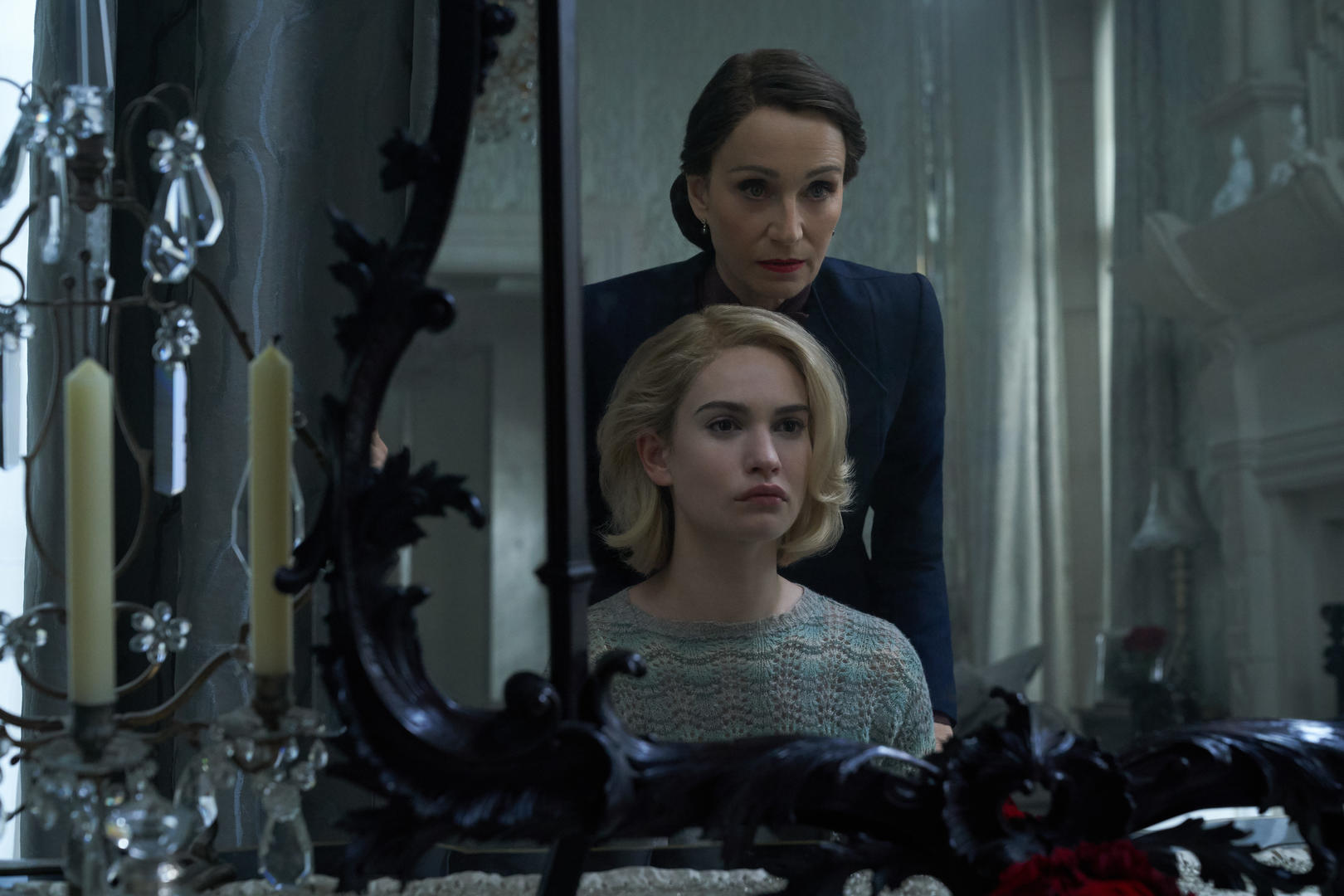Director Ben Wheatley doth protest too much. He may want to play down any comparison to Alfred Hitchcock’s 1940 version of, “Rebecca”, but the parallels are too great to ignore. Both rotund, idiosyncratic filmmakers with a devilish cruel streak that flashes across their psyche like a slit throat. Both chose Daphne du Maurier’s gothic romance to make their mark in Hollywood (does Netflix count?) and escape little Britain in the midst of national crisis, Hitchcock the second World War and Wheatley the ever-increasing shit show that is the Tory response to Covid-19.
Like the Lily James’ narrator, the second Mrs de Winter, Wheatley wants to be seen in great company, no longer content to be adored by those of us who revere the gothic brutality of “Kill List” or revel in the working-class farce of “Happy New Year, Colin Burstead” he needs to gleam golden lens flares from 1930s Monte Carlo and shimmer azure waves from the Mediterranean. And who can blame him? Like the second Mrs de Winter, he’s come a long way from, ‘Down Terrace” and, like Hitchcock who saw “Rebecca’s” psychodrama close to his own fascination of sexual repression and control, it is also the perfect vehicle for Wheatley to continue his exploration of the existential, damning effect, patriarchy has on women who fight against it.
Back in Wheatley’s, “Sightseers” Tina is a crutch for her obsessive mother whose husband presumably left her to raise Tina alone. She is bitter and spiteful, passive aggressive, manipulating her daughter into a sexless, infantilized adult, stranded in her bedroom. Like Mrs Danvers in, “Rebecca” her mother holds a torch for a lost loved one, but this is no Rebecca de Winter, Tina has the indignity of trying to live up to her dead dog, Poppy. Tina is rescued by her boyfriend Chris, who harbours dark secrets as they travel austerity Britain by caravan. Only by torching Chris’ mobile castle and rejecting his final act of control does Tina fleetingly escape his male oppression and the residue of her own father’s negative impact on her life through his proxy, her mother.
The second Mrs de Winter in “Rebecca” starts out as a lady’s companion for an equally overbearing dowager, Mrs Van Hopper. Like Tina, she is bruised and humiliated, paying for her little freedoms with vicious barbs to keep her firmly in her place. Unlike Tina, she orbits more exalted company and is wooed and courted by the recently widowed Maxim de Winter, wrapped in tradition and old money, sporting a Bentley and the grand estate, Manderley rather than a Volvo and a caravan as owned by Chris.
Armie Hammer’s Maxim doesn’t fire staccato hot like the machine gun or Laurence Olivier, but broods, a furrowed brow, an oversized Robert Redford, radiating preppy menace but falling short of Byronic allure and mystery. Soon he whisks her away to the oppressive and opulent halls of the family pile, Manderley, a gilded cage for the new Mrs de Winter and a shrine to the old one, Rebecca de Winter presided over by Kristen Scott Thomas’s efficient and menacing Mrs Danvers, the overreaching housekeeper who has grown a little too accustomed to taking charge of the day-to-day affairs of her titled betters. How dare she.
The haunted halls of Manderley should provide Wheatley with rich, baroque pickings but, like a working-class boy in elite surroundings, he is on his best behaviour, as if constricted by imposter syndrome or too hemmed in by the material. There are flashes of his old self, namely smuggling in Jason Williamson from the vital band, “Sleaford Mods”, who holds court in the servants’ quarters below stairs but maybe that’s how Wheatley sees himself now, infiltrating the mainstream to reap archaic cinematic carnage from within. “Rebecca” then is his Trojan horse and we should really wait for, “The Meg 2” to see what he has up his sleeves for Hollywood.
What is arresting is how Lily James, as the second Mrs de Winter, also reinvents herself from the timid, doe-eyed companion, riddled with naïveté to the lady of Manderley who exorcises the ghost of her rival and is prepared to do what it takes to escape her class position. The forces of the British patriarchal class system weigh heavy on her shoulders, but she is pragmatic and has reconciled herself to her Faustian pact. At one stage Mrs Danvers tells her, “We women can either marry or go into service.” To succeed as the second Mrs de Winter and control her destiny she must hold her nose and do both.

